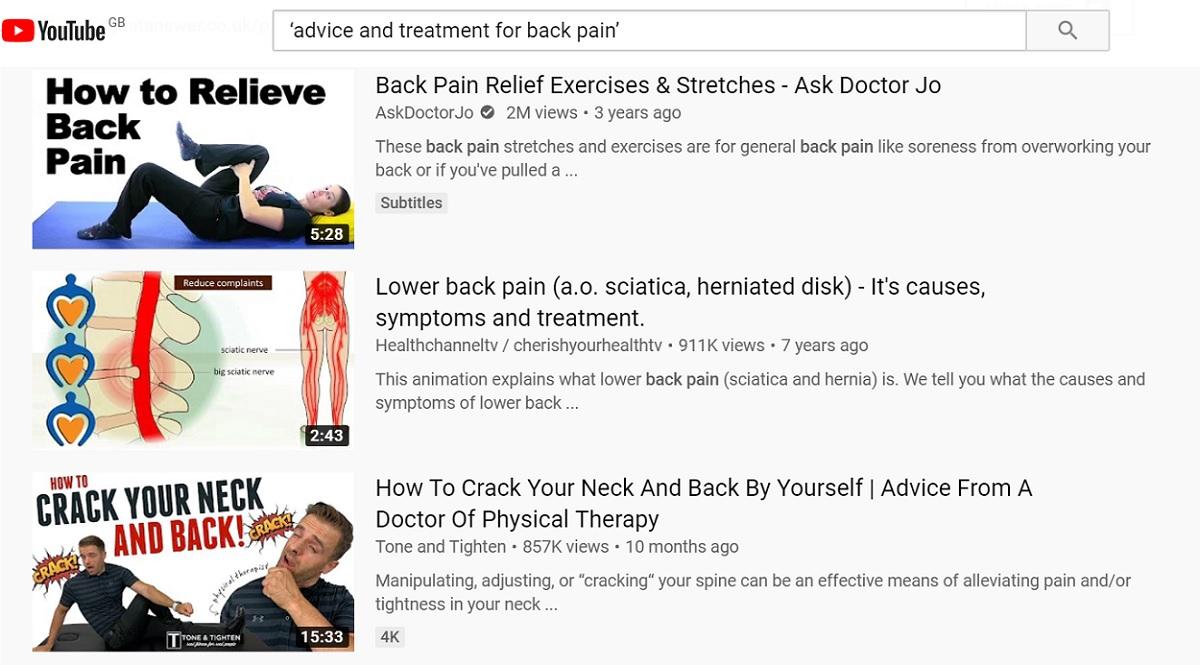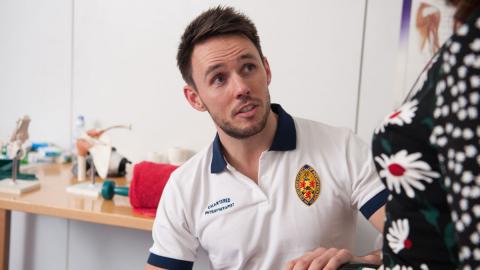Physiotherapists are calling on people to visit trusted sources online after a study highlighted alarming levels of misinformation in the most-watched back pain videos on YouTube.

Millions of searches are conducted each year for advice on common bone, muscle or joint problems, such as back, neck or shoulder pain, and will have been the first course of action for many people during the lockdown.
The Chartered Society of Physiotherapy enlisted a team of specialist musculoskeletal physiotherapists to study the 100 most highly viewed videos on YouTube when searching for ‘advice and treatment for back pain’.
Some of the videos had millions of views but the physiotherapists found:
- Almost half contained a myth (43%)
- Six in 10 contained false or misleading information (60%)
- Nearly a third had an unrealistic video demo (32%)
- Four in 10 contained unhelpful language that was fear evoking or contradictory (42%)
- Almost half did not state their qualifications for providing advice (45%)
Among the most egregious examples were videos that recommended applying garlic oil to the back, taking devil’s claw and avoiding ‘abnormal eating’.
Some claimed to have a ‘miracle cure’ for back pain - such as drinking lemon and salt – while others promised a ‘quick fix’.
Many pushed advice that would lead the viewer to believe their back was weak or easily damaged and movements such as bending or twisting should be avoided.
Physiotherapists say the study reflect a wider problem with unregulated health advice online, and reported regularly seeing the consequences in their clinics before the lockdown.
A snap poll of 100 physiotherapists found that nearly a third (32%) of their patients cited false or misleading information they got from the internet on a daily basis.
Two thirds (66%) of physiotherapists said they had to treat patients whose condition had worsened because of this.
The CSP has worked with NHS England, Public Health England, Versus Arthritis, The British Orthopaedic Association (BOA), The British Society for Rheumatology (BSR), and the Arthritis and Musculoskeletal Alliance (ARMA) to create a hub of evidence-based online advice for common problems such as back or neck pain.
Physiotherapists are reporting treating an emerging number of patients with ‘isolation injuries’ due to doing unfamiliar exercise programmes, suddenly doing lots of garden and doing odd jobs around the house.
Chartered Physiotherapist, Lisa Osborn-Jenkins, who led on the research, said:
'We weren’t surprised at the amount of misinformation we found online as it’s reflected at our clinics when patients arrive fearful with unhelpful beliefs and expectations of treatments that may help.
'We are particularly concerned that during this difficult period for all of us, many people are doing everything they can to avoid placing added pressure on healthcare workers so may be relying more on advice they find online. Our lives have become more digital through the current challenges and yet there is a mind-field of online advice available.
'The public need to be aware that this information isn’t regulated and with a click of your mouse you risk receiving biased, unhelpful and incomplete advice.'
Andy Bennett, NHS England’s national clinical director for musculoskeletal conditions, said:
'It’s understandable that people in pain could be drawn to advice that offers quick fixes, but these ‘treatments’ can often make matters worse, which is why it’s critical that people can access the right advice to help manage their pain. I would urge anyone with bone, joint or muscle pain to visit reliable sources of information whether this is the NHS website or the CSP hub and seek treatment if they need it through a GP or 111.'
The hub can be found at www.csp.org.uk/mskadvice.
Find Out More
Number of subscribers: 4






































